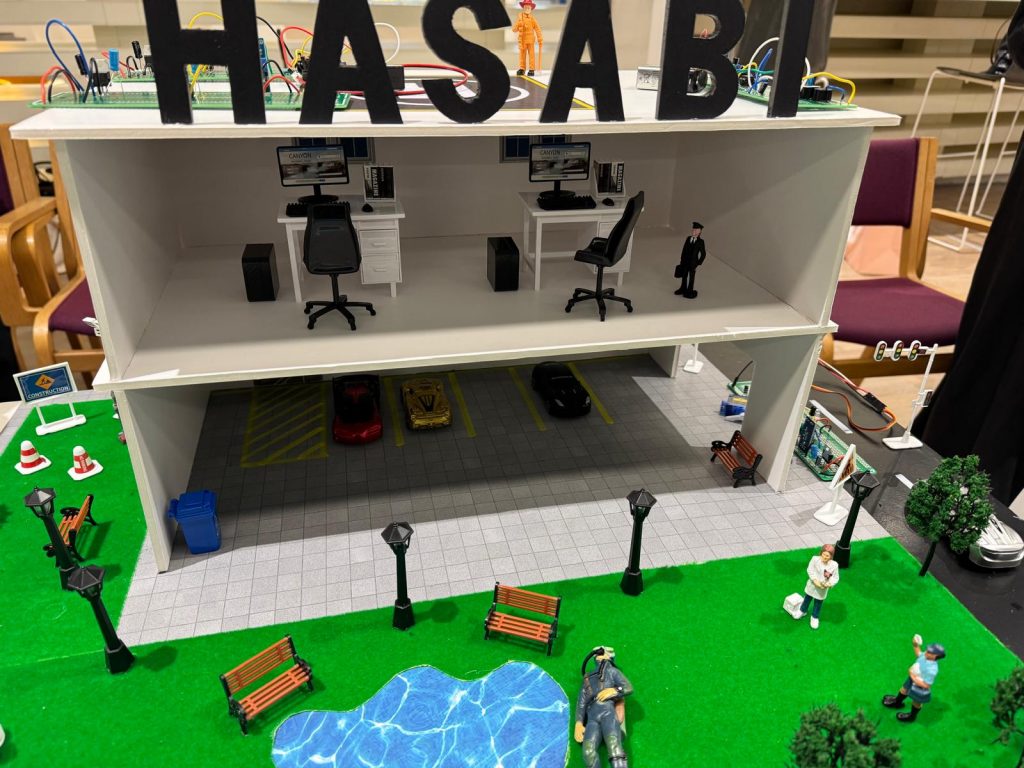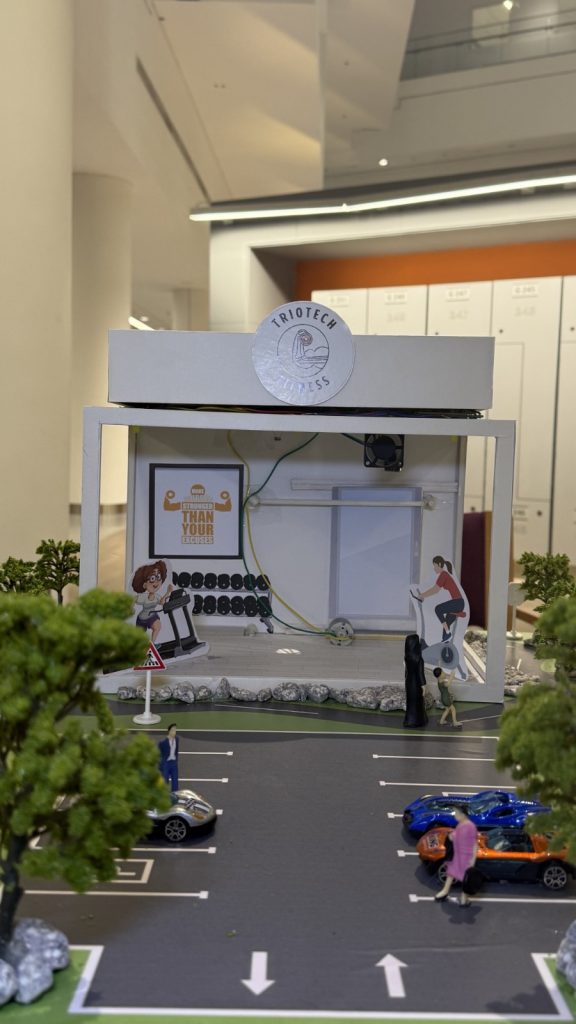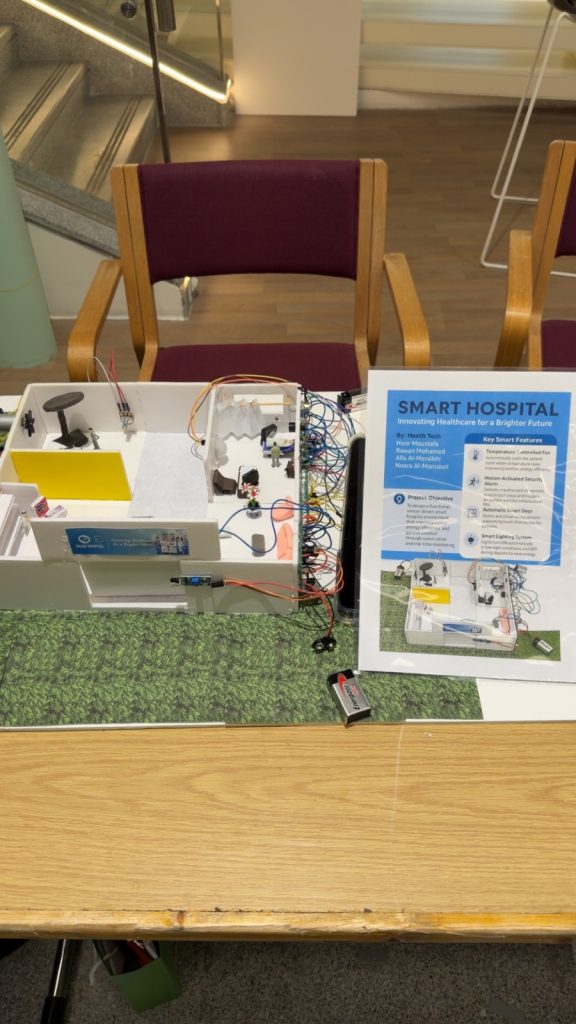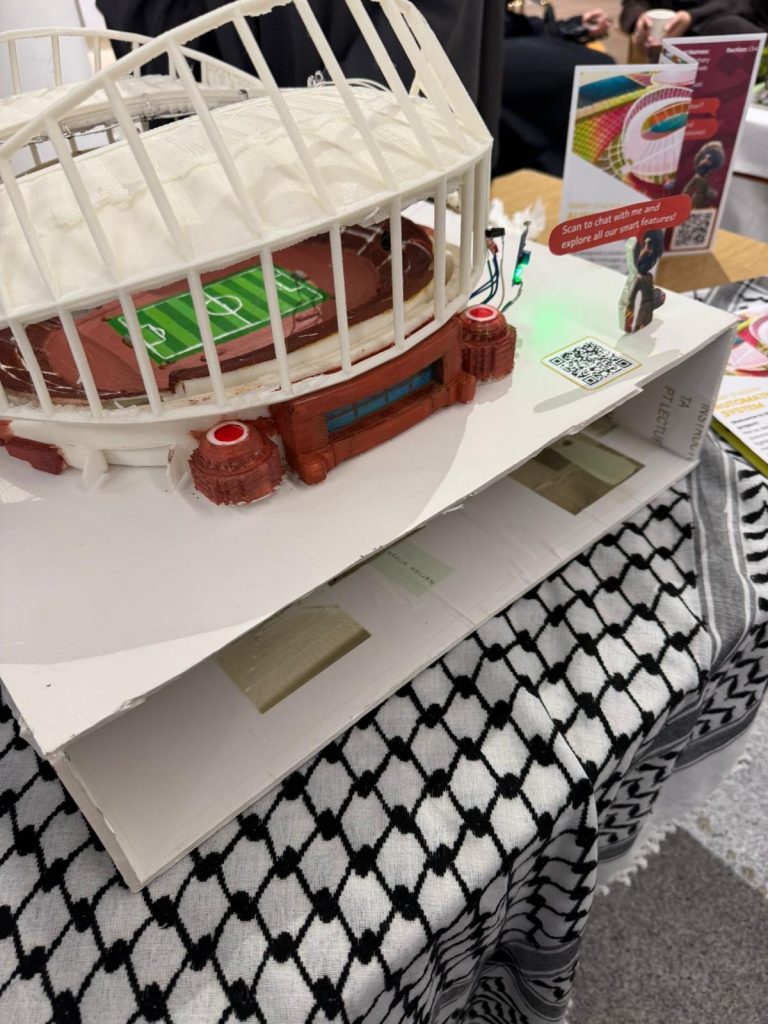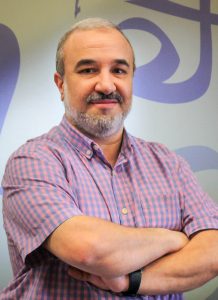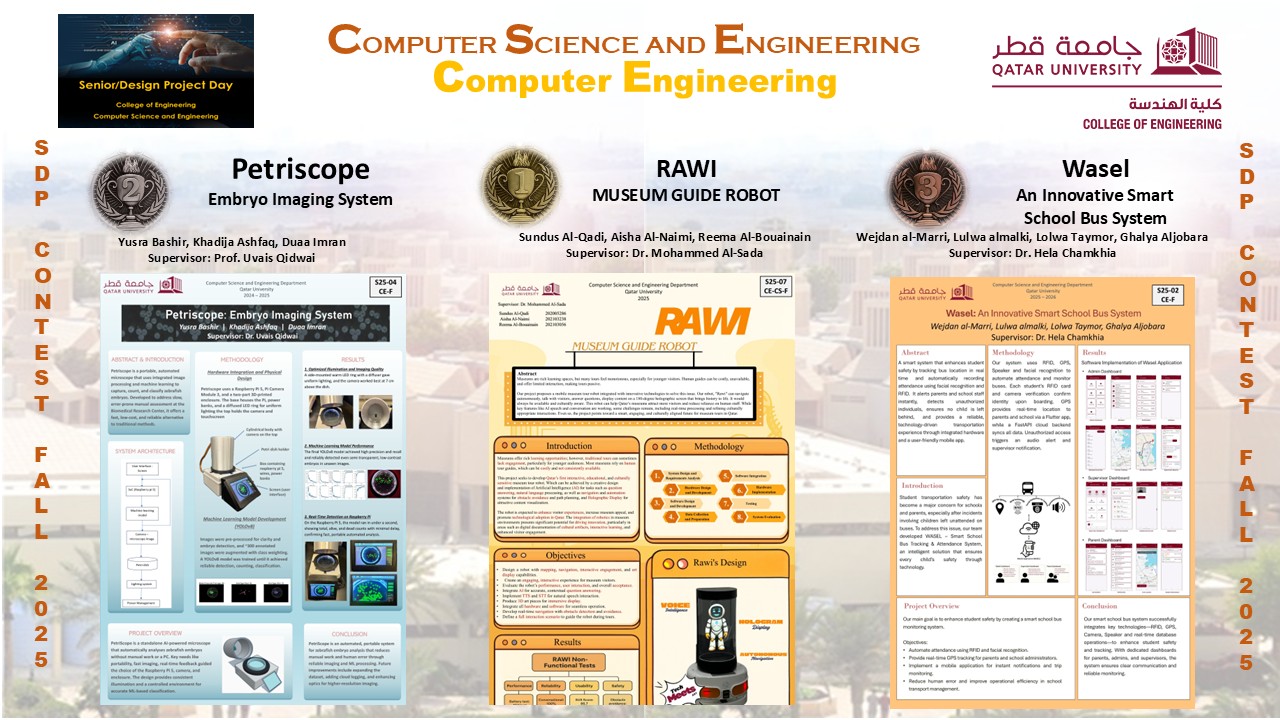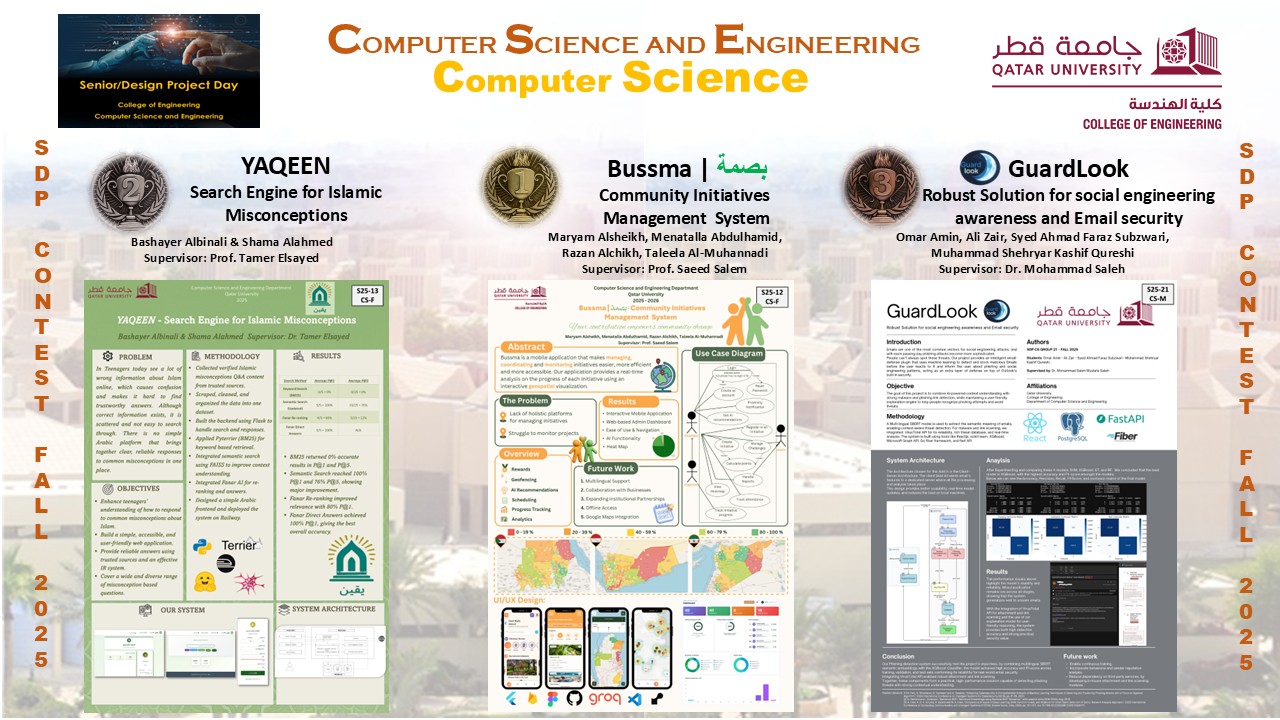A team of Computer Science students proudly represented the CSE community by winning first place at the inaugural Snoonu Hackathon in Qatar, a high-intensity innovation challenge that brought together university students and recent graduates from across the country. The winning team consisted of Mazen Elsayed, Mohamed Alfaiad, Hamza Moussa, and Mohamed Asad.
The hackathon focused on solving real operational and product-level challenges within the super-app ecosystem, under strict time constraints. During the competition, the team designed and implemented a real-time, map-based routing algorithm that supports multiple pickups and multiple drop-offs, significantly improving order grouping and dispatch efficiency to reduce both delivery time and operational cost. This achievement reflects the strong problem-solving skills, innovation mindset, and execution capabilities of CSE students when applied to real-world challenges.
The CSE department congratulates the team on this outstanding accomplishment and looks forward to seeing their continued success in future competitions and projects.
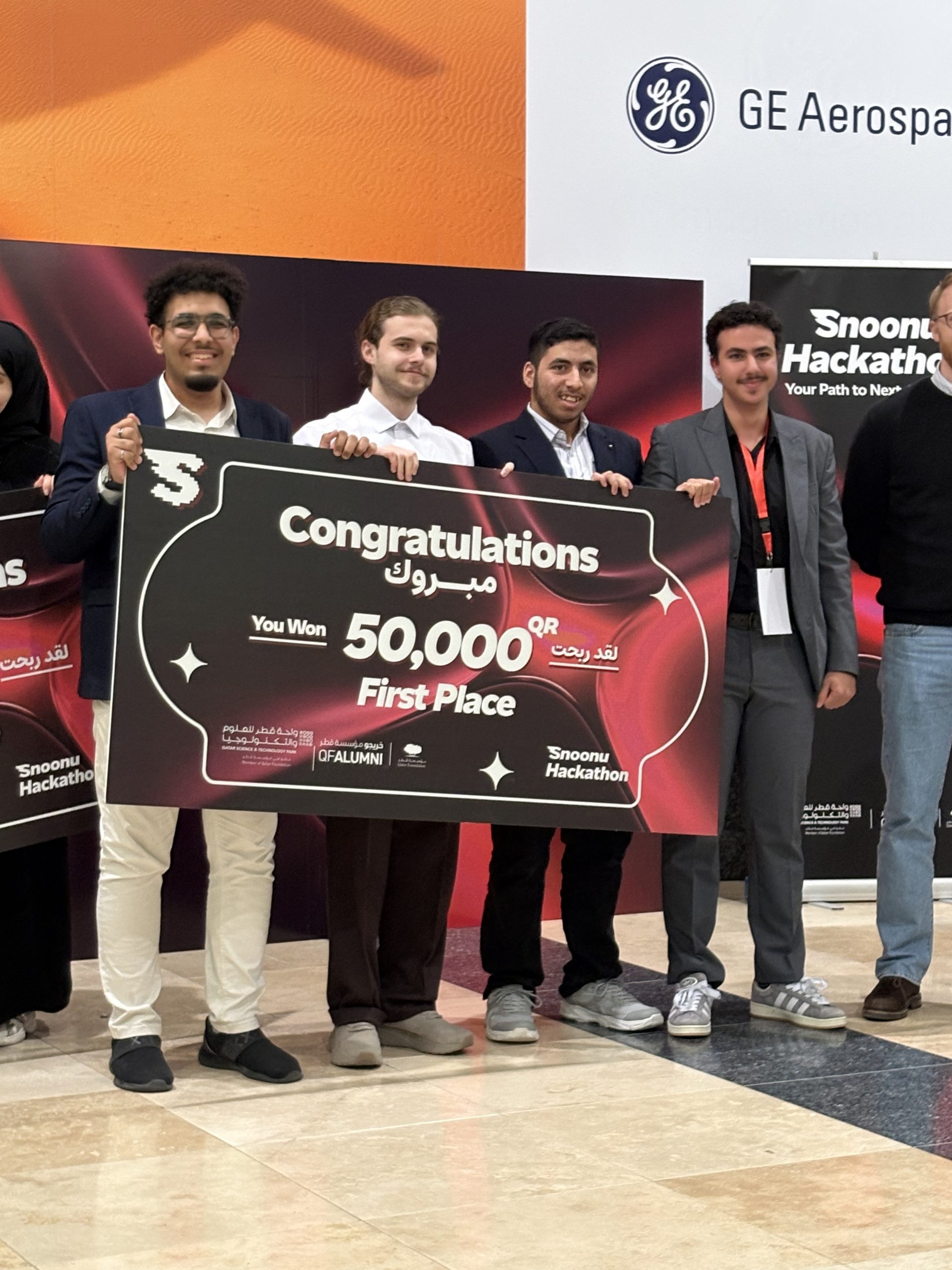





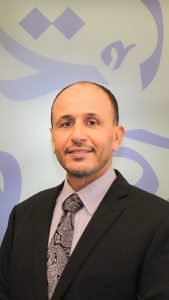
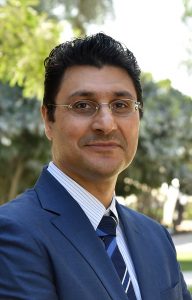
 1st Place: KHALIFA STADIUM by Ayah Tello, Amina Hamid, Rawan Alsati, and Raghad Abed
1st Place: KHALIFA STADIUM by Ayah Tello, Amina Hamid, Rawan Alsati, and Raghad Abed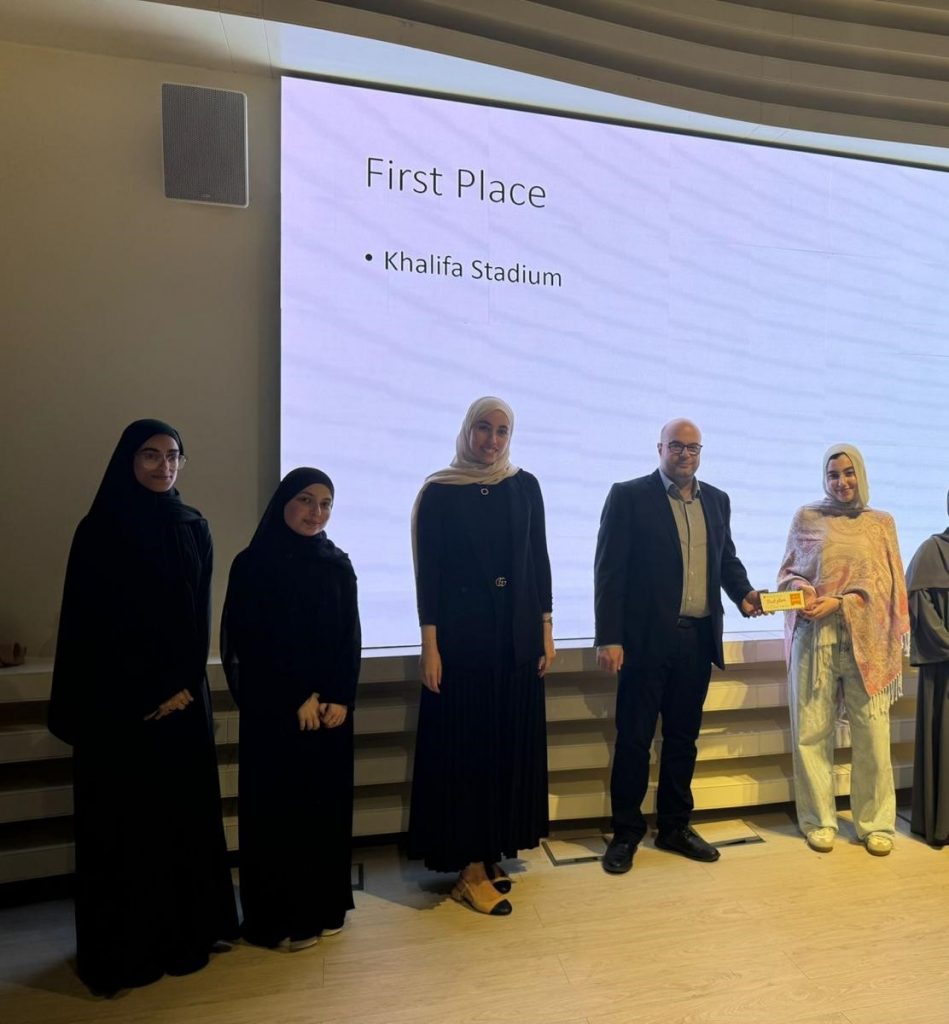
 2nd Place: HEALTHTECH SMART HOSPITAL by Alla Al-Meraikhi, Hoor Moustafa, Rawan Mohamed, and Noora Al-mansouri
2nd Place: HEALTHTECH SMART HOSPITAL by Alla Al-Meraikhi, Hoor Moustafa, Rawan Mohamed, and Noora Al-mansouri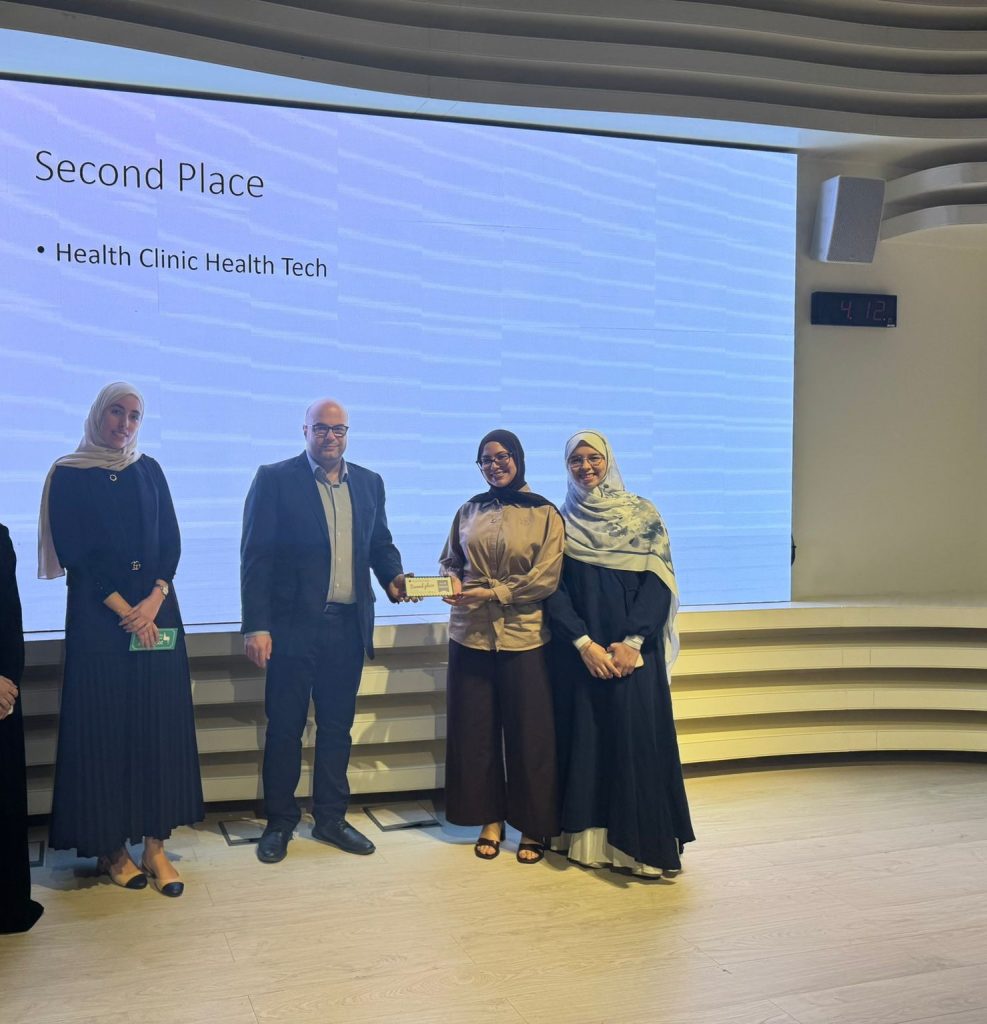
 3rd Place: TRIOFITNESS GYM by Alya Yousef, Shamma Al-Hajri, and Najd Al-Turki.
3rd Place: TRIOFITNESS GYM by Alya Yousef, Shamma Al-Hajri, and Najd Al-Turki.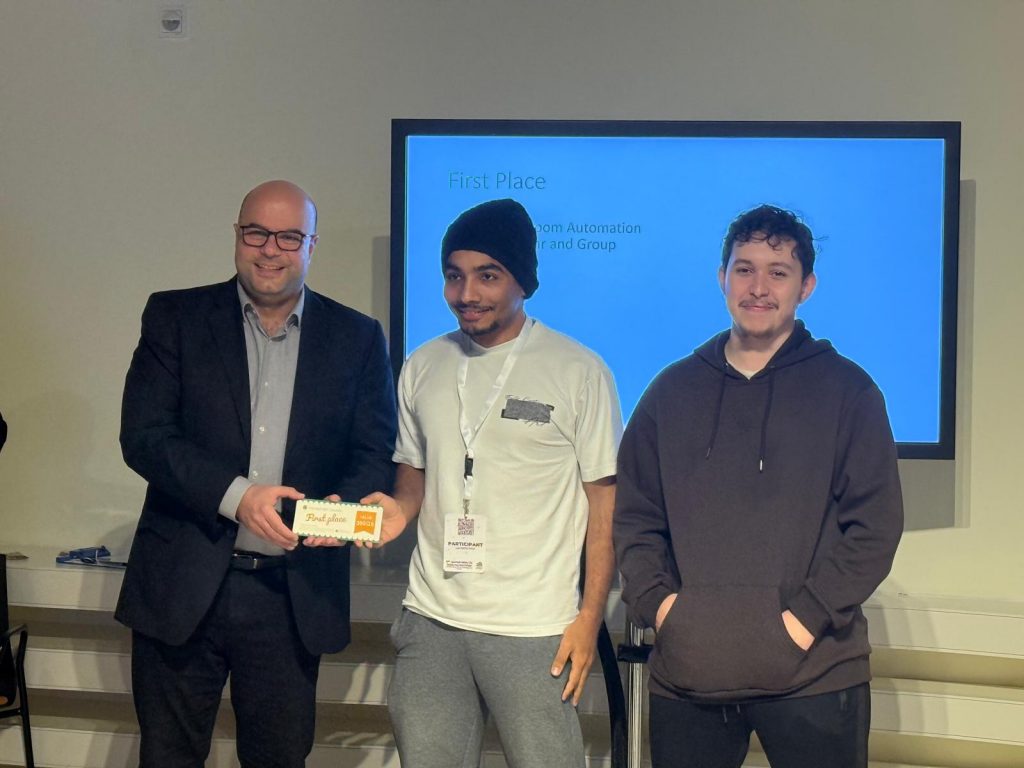
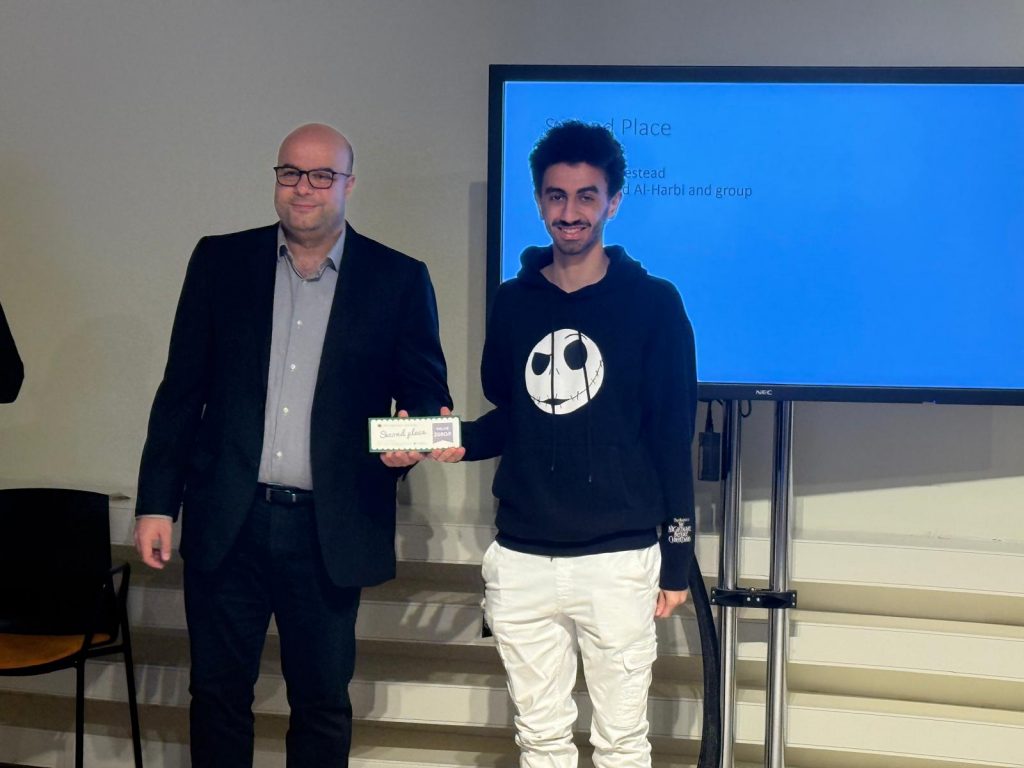
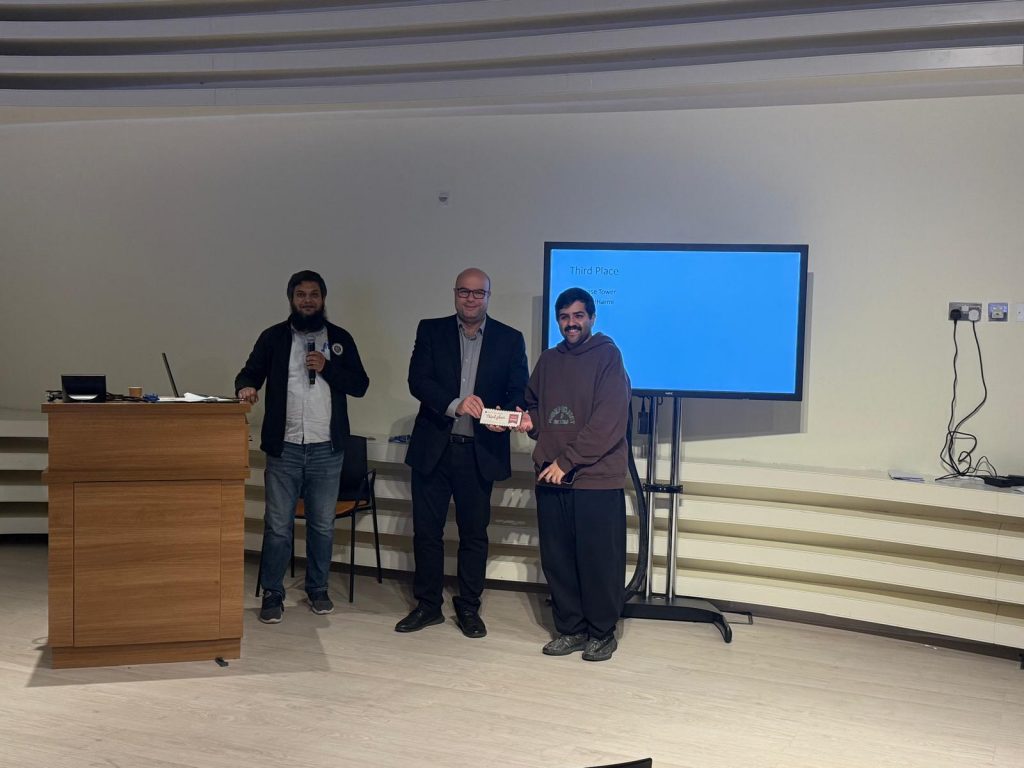
 Congratulations to all participating students on their outstanding work, and sincere thanks to the jury members and course instructors,
Congratulations to all participating students on their outstanding work, and sincere thanks to the jury members and course instructors,